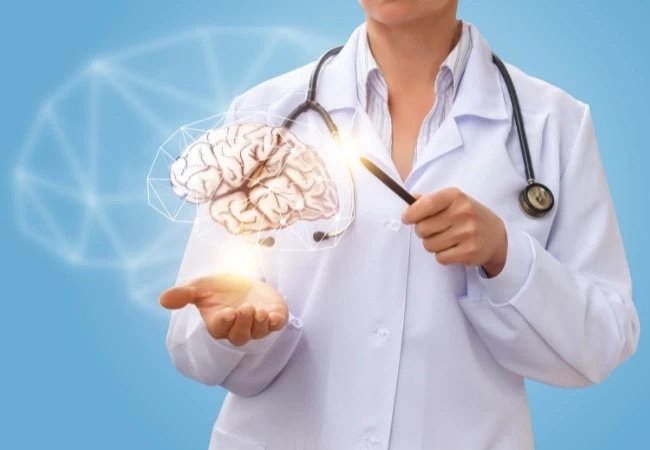Estrogen, Peptides, and Brain Health: The Future of Preventing Cognitive Decline
If you keep forgetting why you walked into the kitchen…
Why “mom brain” is actually a big red flag.
We all misplace our keys. That’s human. We can laugh about it, brush it off, but did you know that dementia-like symptoms and Alzheimer’s start to show signs even in our 30s?
Many of my patients see what happens to their parents or loved ones who lose their memory and their vitality, and they want to avoid that at all cost for themselves and for their own family's sake.
Too often, it’s too late. The sooner you catch signs of cognitive decline, or better yet prevent it, the better!
Estrogen & the Brain: The Connection
Estrogen isn’t just about cycles and hot flashes—it’s a neuroprotective hormone, and there’s a reason for that brain fog. Estrogen supports:
Memory & cognition (estrogen boosts synaptic plasticity)
Inflammation control (low estrogen = more brain inflammation)
Energy production (estrogen fuels mitochondria, the brain’s batteries)
As estrogen declines in perimenopause and menopause, risk of Alzheimer’s-like changes rises. That’s why women make up nearly two-thirds of Alzheimer’s cases.
But besides estrogen, there are amazing ways that we can support brain health especially for those who are either too scared of hormone replacement, cannot start hormone replacement, or do not have access to it.
PEPTIDES & BRAIN HEALTH
Thymosin β₄: we naturally make this peptide, but like other things, that production declines with age
Helps calm brain inflammation and stimulates growth factors (NGF, BDNF).
In Alzheimer’s-model mice, it reduced amyloid buildup and improved memory.
Think of it as an “anti-brain-rust” peptide.
Want to read more research about this peptide? Head here.
Dihexa: developed from angiotensin IV, a small peptide produced naturally in the body.
Nicknamed the “synapse builder.”
Up to 10 million times stronger than BDNF in stimulating new brain connections. That is some serious gains!
Dihexa outperformed Donepezil (a common Alzheimer’s medication) in animal studies, with longer-lasting effects on memory and cognition.
Supports more synapses = stronger neuronal communication, which is the biological foundation for learning and memory.
WHAT YOU CAN DO NOW
Balance estrogen wisely
Talk to your provider about bioidentical hormone replacement in perimenopause/menopause. Early support can protect brain health.
Feed your brain
Omega-3s (DHA is brain fuel).
Polyphenols (think blueberries, green tea, turmeric).
Move like your memory depends on it
Aerobic and strength exercise boosts BDNF—the same growth factor that Dihexa mimics.
Prioritize sleep, don’t try to hack it
Deep sleep clears amyloid plaques—the very ones tied to Alzheimer’s
If you’ve got these fundamentals down, and still feel like you need additional support, Healthgevity has made Thymosin Beta-4, Frag 500 and Dihexa peptides available to keep our minds sharp with every decade.

